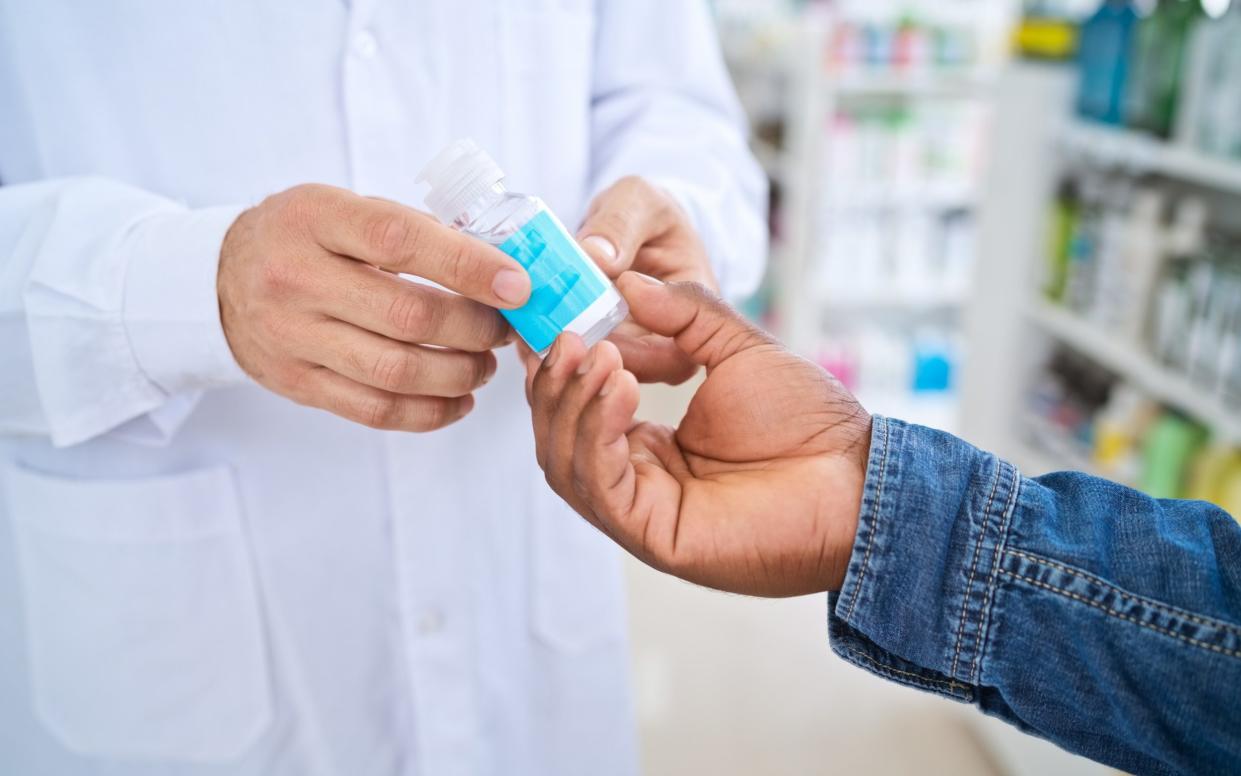What a pharmacist can treat – and when to go to your GP

Fed up with the 8am call-queue rush? According to a new announcement from the NHS, pharmacists will now be given extra powers to treat patients with seven new conditions that can be treated with antibiotics.
Patients will now be able to walk into more than 10,000 chemists in England, without needing to book an appointment. This will free up as many as 30 million GP appointments a year.
This follows a report late last year suggesting that patients with the chronic conditions of asthma and high blood pressure could soon be seen by pharmacists instead of waiting to see their GP, who will also be able to refer them for scans and blood tests.
Pharmacists say that they can already treat more conditions than you might realise – all without waiting for a GP appointment. Pharmacists are much more than shop assistants. Every pharmacist must study for four years to gain a master’s degree, plus have a year in practice before they are qualified. They learn about the science of medicines, including which drugs work best for which condition, anatomy, and biology. They are regulated professionals and fully insured.
So what can be treated on the high street, and when should you persevere with your doctor? We asked James Davies, a pharmacist with the Royal Pharmaceutical Society.

What are the new conditions pharmacists are now able to treat?
Pharmacists will be now able to offer treatment including antibiotics when appropriate for seven conditions: UTIs, earache, infected insect bites, sinusitis, sore throat, impetigo and shingles.
Which other conditions can your pharmacist currently manage?
Anything to do with your medications, such as side-effects, efficacy, or advice on taking them – we can help with.
We can also advise on using over the counter (OTC) products and help with a wide range of minor conditions, including coughs and colds, tummy upsets, skin rashes, aches and pains, sunburn and head lice. We can help with an eye infection, depending on how long you’ve had it, hay fever, thrush and minor cuts and grazes.
Some pharmacies dispense antibiotics for UTIs in women. Others perform ear wax removal for blocked ears (which most GPs do not offer) along with flu, covid and travel vaccinations. Other travel health services a chemist might provide are antimalarial drugs.
If you run out of your medication, you may be able to get an emergency supply from your pharmacist without a prescription.
Can you discuss sexual health with your pharmacist?
Sometimes, yes. A chemist’s sexual health service can include treatments for erectile dysfunction such as Viagra. Plus, we can provide the progesterone-only pill and emergency contraception. Levonelle (the “morning after pill”) can be taken within 72 hours of having unprotected sex, and ellaOne can be taken within 120 hours (5 days). By the end of the year, all pharmacies will be allowed to roll out a wider range of NHS supplied (free) contraceptives.
Don’t worry about having to discuss these issues on the shop floor. Every pharmacy has a private, enclosed consultation room. It may not be immediately visible, but there is always somewhere to speak to a pharmacist in confidence. Just ask at the counter.
What about preventative tests?
A range of tests and treatments are available, including for chlamydia, blood pressure, cholesterol and blood sugar. There are also smoking-cessation and weight-managing services, which can include lifestyle advice and, if you’re suitable, the prescription of the weight-loss medication Orlistat, which reduces the amount of fat absorbed from your diet. Plus, flu and covid jabs.
When should I bypass my pharmacist and go straight to a doctor?
For serious symptoms - loss of consciousness, loss of lots of blood or difficulty breathing - you should seek urgent care at A&E. If you have covid symptoms, please don’t go to a pharmacy. If you have lumps or other problems in intimate areas, it’s better to use GP consultation rooms.
However, with other symptoms, pharmacists are good at knowing when to treat and when to refer. I have had an experience when someone came in with asthma who was struggling to breathe. They came in for hay-fever treatment, but I called an ambulance there and then. We can suggest where people can get help if it’s beyond our competence. Some areas have a dedicated professional line to GP surgeries, but even if that’s not the case in your area, if we call a GP surgery, we can help fast-track patients and push them up the triage list if necessary.
Use the pharmacy finder by postcode at https://www.nhs.uk/service-search/pharmacy/find-a-pharmacy - click the pharmacy to see the services it offers. Or you can google “NHS UK find a pharmacy”, which will list the same link.
Recommended
Confused about Covid? Here’s how to behave in 2024 and what to do if you test positive

 Yahoo News
Yahoo News 
